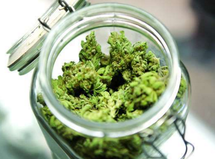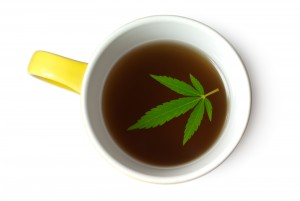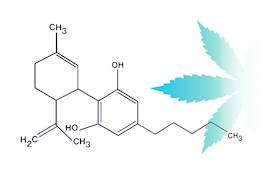|
Is getting high important for feeling better? A new study titled “Understanding Feeling High and its Role in Medical Cannabis Patient Outcomes” was recently published in the journal “Frontiers in Pharmacology” by researchers at the University of New Mexico. The study found that patients who reported feeling high also experienced 7.7% better symptom relief than those who did not report feeling high. Does getting high contribute to medical treatment? The researchers at UNM are the first to ask the question.
1,882 people recorded the results of 16,480 Cannabis using sessions. That calculates to an average of just more than eight recorded sessions over almost five years. Generally, I see this as a red flag. Most regular Cannabis users use daily to weekly. This study population is clearly different. The respondents reported feeling high 49% of the time. That’s an encouraging result. I would estimate, conservatively, that 75-80% of my patients are getting high. As Cannabis becomes popular and its medical benefits are realized, users may not wish to “get high” thus reflecting this study population. In this study, patient who got high reported 4.4% greater positive effects like “Relaxed” and “Chill”, as well 14.4% increase in negative effects like “Dry Mouth” and “Red Eyes.” “Feeling high is poorly defined in the scientific literature,” explains senior author and associate professor of psychology, Jacob Vigil, “but it is generally associated with both impairment and feelings of euphoria. Typically, feeling high is assumed to be the goal of recreational use, but a limitation to Cannabis therapeutic potential. In this paper we test the validity of this assumption and find that feeling high may be an unavoidable component of using Cannabis medicinally. “ Definitively, this study found a positive association between feeling high and symptom relief. The analysis controlled for THC and CBD levels, dose, mode of administration, and symptom severity. There were other interesting associations. Smoking a pipe appears to be a better predictor of symptom relief than either smoking a joint or vaporizing the flower. However, the major discovery of this study is that higher THC levels are not significant predictors of symptom relief and only become significant once feeling high is included in the analysis. As well, THC is a significant and independent predictor of negative effects. These results suggest that feeling high may be a fundamental component to effectively using Cannabis as medicine. It's all in your head, some might say. They may partially be right. The benefit of Cannabis includes a neuro-emotional component. Thus, a better perspective may be not to separate emotions from physiology. The nexus of the two worlds appears to be where Cannabis has its influences. Our Cannabis research group, the CESC, describes the challenges of understanding Cannabis therapeutics as the “many-to-many problem.” The study’s lead author and associate professor of economics, Sara Stith, also highlights the challenges of using Cannabis as medicine. “Cannabis products are extremely variable in their phytochemical composition and patients vary extensively. These complexities suggest that the future of Cannabis-as-medicine lies in highly customized treatments rather than the conventional pharmaceutical model of standardized dosing.” This study concludes with some important recommendations.
|
AuthorJean Talleyrand, M.D., Archives
September 2023
Categories |
Mailing Address: MediCann 1336 Willard Street, C • San Francisco, CA 94117
Important Disclaimer!
The information contained in this site does not intend to replace any medical advice or care by a trained physician.
Any use of this information is solely the the responsibility of the user.
Important Disclaimer!
The information contained in this site does not intend to replace any medical advice or care by a trained physician.
Any use of this information is solely the the responsibility of the user.
© COPYRIGHT 2015. ALL RIGHTS RESERVED.


 RSS Feed
RSS Feed


